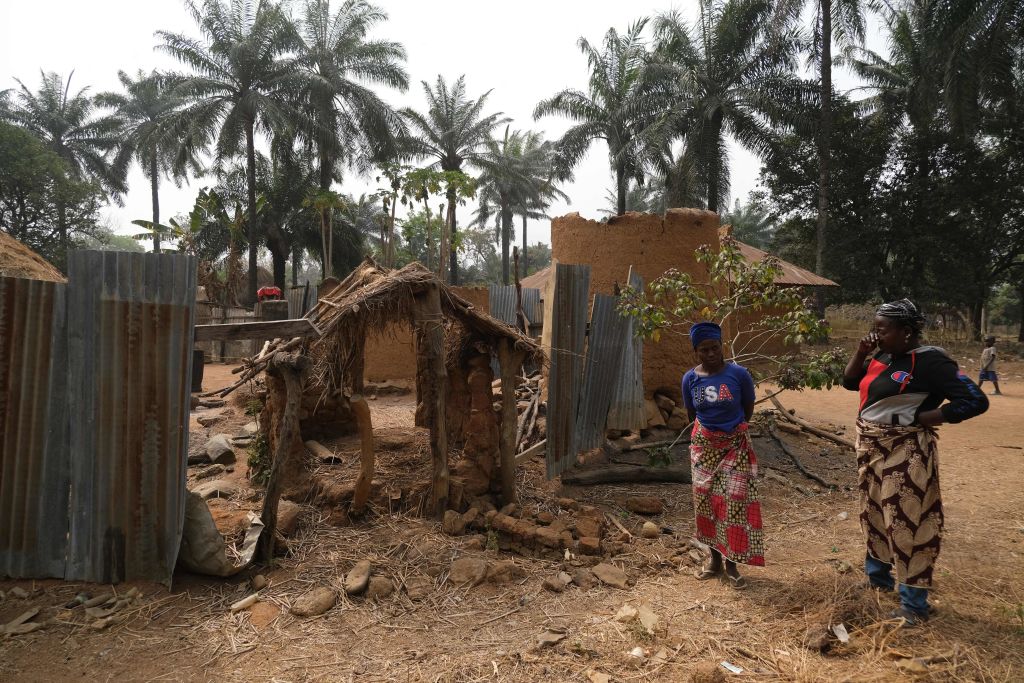Widespread Abuses on All Sides of Cameroon’s Anglophone Crisis
ADF STAFF
Tanyuy Etienne is a mental health specialist who treats victims of gender-based violence in Cameroon’s Northwest region, where a civil war continues into its sixth year.
He says he has treated 30 women and girls — some as young as 9 years old — who were raped by security forces or members of armed groups.
“A lot of people are living with post-traumatic stress disorder because of the crisis,” he told The Associated Press.
Summary executions, rape and torture are among the abuses that civilians are suffering at the hands of security forces, Anglophone separatists and militias, according to a new report from rights group Amnesty International.
“Nobody is taking seriously the situation, at least not seriously enough regarding the scale of the human rights violations committed,” Amnesty senior researcher Fabien Offner told The Associated Press.
Although Cameroon’s crisis emerged from colonial-era tensions between English-speaking minority and Francophone majority, intercommunal conflict has aggravated the chaos. Experts agree it’s an emergency that urgently needs global attention.
The Norwegian Refugee Council has Cameroon’s Anglophone conflict on its 10 most-neglected displacement crises list for the fourth year in a row.
Between 715,000 and 1 million civilians in the two Anglophone regions have been displaced since separatists began waging a low-intensity insurgency in late 2017. In May, the Global Centre for the Responsibility to Protect confirmed the official figure of at least 6,000 killed.
Analysts say the actual numbers are likely much higher, as fighting has escalated steadily in recent years.
With no sign of potential peace in the Northwest and Southwest regions, political scientist Chris W.J. Roberts compared conditions in Cameroon to those that led to Sudan’s civil war.
“With an impending succession crisis, endless war on the frontiers, a factionalized governing party and fragmented security forces, Cameroon faces similar risks,” he wrote in a July 6 article for Foreign Policy magazine.
“It is possible that similar struggles could break out within the ruling party, with factions leveraging different elements of the security services to back their claims.”
President Paul Biya turned 90 this year, and the country’s uncertain political future could add significant stress to the status quo.
Raoul Sumo Tayo, a defense specialist and visiting lecturer at Maroua University, is calling on Cameroonian authorities to put more effort into peacemaking and protecting all citizens.
“It is not acceptable for people to not feel safe around the national army,” he told France 24 television.
According to an Amnesty International report, the Cameroonian military appears to have recruited “vigilante groups” from the semi-nomadic Mbororo Fulani community to help in their fight against Anglophone rebels.
The separatists in turn have targeted the Mbororo Fulani.
Revenge killings are common in the Anglophone regions, and civilians are caught in the crossfire, Etienne said, describing the vigilante militias as “very hostile on the population, committing acts like rape, torture, death and other atrocities.”
In its report, Amnesty International criticized the government for exacerbating the crisis: “The government has announced the opening of investigations on human rights violations committed by armed forces’ elements. However, for many cases, there has been no further information released, raising impunity concerns.”
Samira Daoud, Amnesty International’s regional director for West and Central Africa, decried the continuing flow of heavy weaponry into an already deteriorating situation.
“We urge Cameroon’s international partners to carry out rigorous human rights risk assessments before sending further arms and to conduct end-use monitoring to ensure that military assistance does not contribute to further human rights abuses,” she said in a statement.
“Where there is credible evidence that arms are being diverted to armed groups accused of committing serious crimes, the provision of such military assistance must be suspended.”


Comments are closed.